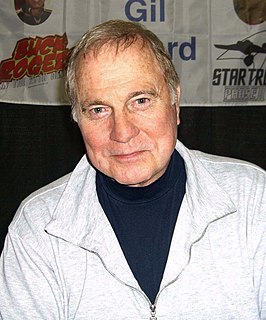A Quote by Cory Doctorow
It's part of a cycle of stories I'm writing where I deconstruct classic science fiction.
Related Quotes
Science fiction is any idea that occurs in the head and doesn't exist yet, but soon will, and will change everything for everybody, and nothing will ever be the same again. As soon as you have an idea that changes some small part of the world you are writing science fiction. It is always the art of the possible, never the impossible.

































